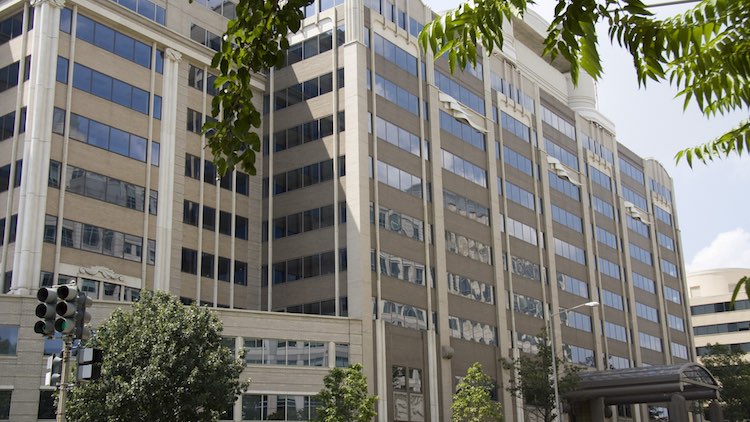BDS Deregulation Foes: FCC's Plan Raises Legal Issues

The smarter way to stay on top of broadcasting and cable industry. Sign up below
You are now subscribed
Your newsletter sign-up was successful
Groups working hard to block or delay the proposed FCC deregulation of broadband business data services (BDS) teamed up for a conference call with reporters Tuesday as the clock wound down on the planned April 20 vote, saying the proposal was dangerous, anti-consumer, and susceptible to court challenge for being arbitrary and contrary to the FCC's charter on guaranteeing reasonable rates.
On that call were representatives of Public Knowledge, Consumer Federation of America, INCOMPAS, and the Open Technology Institute, who want the FCC to delay the vote so it can supply some of the economic expertise the chairman has been touting to the data—or failing that to at least provide a three-year transition period so some of the "nearby" competition can come closer.
The groups said that the proposal by FCC chairman Ajit Pai was arbitrary and capricious because it was based on a massive data collection on which his predecessor, Tom Wheeler, based an entirely different conclusion in a Notice of Proposed Rulemaking from which the BDS order being voted this week stems. Wheeler's proposal concluded that the BDS marketplace was not particularly competitive, a conclusion with which the groups heartily agree. Pai's proposal assumes it is generally competitive and getting more so and that the presence of nearby competition and two competitors in a market demonstrated that competiveness.
Phillip Berenbroick, senior policy counsel at Public Knowledge, called the Pai proposal doubling down on consolidation and debunked theories that competition in the BDS market is "just around the corner." Chip Pickering of INCOMPAS suggested that the idea that nearby competition was sufficient was the equivalent of saying "one is enough," which he called a "dangerous, dangerous" test for competitive markets and one that would hurt small businesses, consumers and investment.
Michael Calabrese of the Open Technology Institute also warned that the proposal would undermine wireless broadband because of how dependent wireless is on BDS backhaul services—wireless traffic travels from cell sites over wired (fiber) broadband nets. He said that as much as 30% of cell service operating expenses comes from that BDS backhaul, which they are required to buy at uncompetitive prices from incumbents that are also dominant mobile carriers. He said that is a high-priced fiber diet that the Pai proposal will make even higher.
Pickering, a former Republican congressman from Mississippi, said the Pai proposal was running against the Trump deregulatory tide with respect to education and healthcare and other issues, where the goal was competition and lower prices and that for schools, libraries and small businesses, it would amount to a no bid contract for critical connectivity.
While they would prefer the proposal be deep-sixed or delayed while FCC economists try to square it with the data that led Wheeler to the opposite conclusion—CFA's Mark Cooper said that was unlikely to be successful at any rate—the FCC should provide at least a three-year transition.
The smarter way to stay on top of broadcasting and cable industry. Sign up below
Cooper, fighting a cold but still hot over Pai's plan, said that while it was a business-facing service, it was a consumer issue since the increased cost of business was always passed on to the consumer. He said BDS was the most highly concentrated market, with astronomical profits already due to overcharges, a high cost that impedes deployment. He said that in addition to being arbitrary and capricious, the proposal would violate the FCC's obligation to insure BDS rates were just and reasonable.
Pickering said that raised the probability that the item could be successfully challenged in court.
Contributing editor John Eggerton has been an editor and/or writer on media regulation, legislation and policy for over four decades, including covering the FCC, FTC, Congress, the major media trade associations, and the federal courts. In addition to Multichannel News and Broadcasting + Cable, his work has appeared in Radio World, TV Technology, TV Fax, This Week in Consumer Electronics, Variety and the Encyclopedia Britannica.

